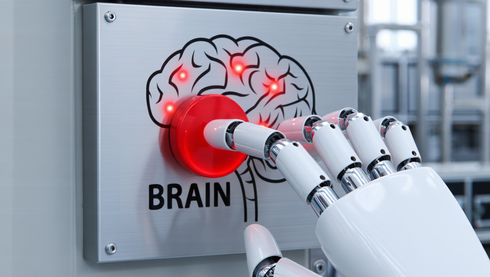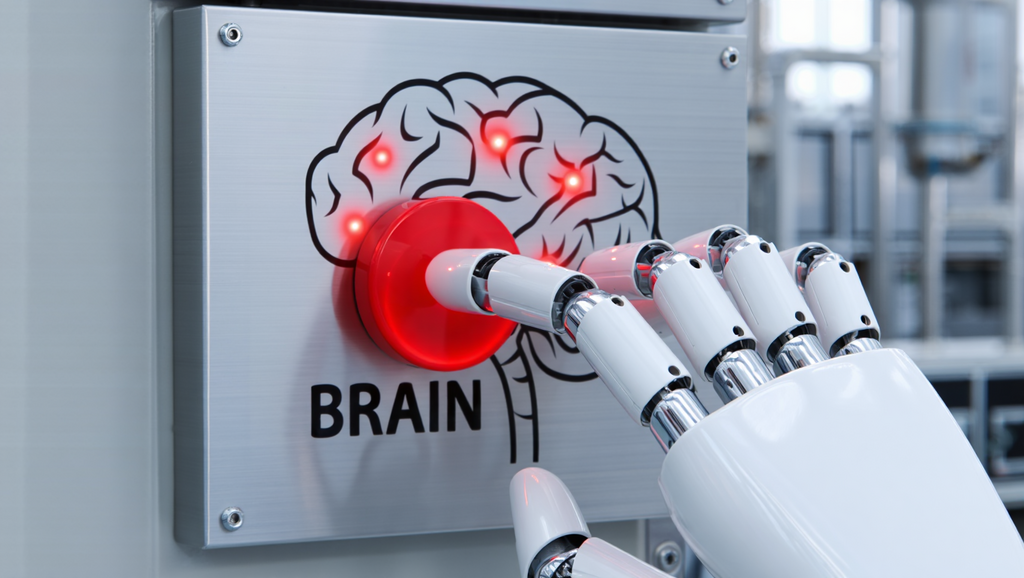
Are AI tools making us smarter or just lazier?
As we lean on intelligent tools, are we outsourcing too much of our brainwork?
With the rapid development of artificial intelligence tools, and my growing reliance on them, I began to wonder: Are my skills being compromised in the process? While these tools have undoubtedly boosted my productivity, I’ve started to feel that I’m becoming increasingly lazy. Although AI doesn’t replace me entirely and functions more as an assistant, in certain areas it allows me to "switch off" my brain. For instance, when I need to come up with an idea, I often go straight to an AI tool. I usually develop the idea further and end up with a better product, but still, I can’t shake the feeling that my creativity has been dulled along the way.
When I brought this up with people around me, I discovered I wasn’t alone. Many shared the concern that as technology improves, their cognitive abilities are atrophying. Others, however, felt that AI has enhanced their skills.
"AI Is a Game Changer"
A., 25, is a student of computer science and philosophy, and works as a programmer at a startup. He began using AI three years ago, and says it has become an integral part of his life. According to him, it’s a “serious game changer” for his studies.
Last semester, for example, A. was on extended reserve duty and used AI to catch up. One of his go-to tools is Google’s NotebookLM, where he uploads course materials and asks the tool to teach him from scratch, like having a personal tutor. It can even turn materials into podcasts. In his programming work, he uses tools like Cursor and Windsurf. “I haven’t written a single line of code in a year,” A. admits.
His use of AI extends to his personal life as well. “It’s sometimes like a psychologist,” he says. “I’ll ask it why I’m feeling stressed, and it’ll suggest breathing exercises. It knows a lot about me. You can tell it anything without holding back.”
Despite the convenience, A. acknowledges a cost: some of his skills have deteriorated. His understanding of code has weakened, and when it comes to schoolwork, the impact is more profound. “In the past, writing a philosophy thesis meant hours of reading, watching videos, and puzzling out the ideas. Today, with AI, I can submit a final project in two days. But the understanding is shallow. You just submit it and move on. That’s a shame.”
Still, A. believes AI makes him smarter overall. “It improves me in so many ways. In philosophy, I can have deep conversations with it. It explains hard topics. I can say, ‘Act like Plato and discuss your work with me.’ These are stimulating exchanges. It’s like having Einstein in your pocket. Some skills have weakened, others have strengthened.”
"AI Completes Me"
Sylvana Lind, 57, is a software engineer and accountant who works on process improvement and automation for finance teams. “AI helps me define the customer’s needs and characterize processes much faster,” she says. “What used to take a week now takes an hour.”
Sylvana was diagnosed with ADHD three years ago. “Thanks to ChatGPT, I can now do things I never could before,” she says. “I’ve always had a ton of ideas and creativity, but I struggled to follow through. With AI, I brainstorm, it organizes my tasks, reminds me, and helps me finish projects.”
She sees AI as a support system that fills her personal gaps. “I bring the ideas, more than it does, and use AI where I’m weaker. It really completes me.”
Sylvana also uses AI in her personal life: to learn languages, buy a car, and find an apartment. “I’m a bit addicted,” she laughs. But she insists it hasn’t made her lazier, quite the opposite. “I can now work for hours with intense focus because everything is organized. I even feel more confident. In the past, I’d avoid big projects, thinking I couldn’t do them. Now I know I have someone, or something, to help me.”
A recent MIT study divided participants into three groups and asked them to write essays: one group used ChatGPT, another used Google Search, and the third used no tools. EEG scans recorded their brain activity. The group using ChatGPT showed the lowest brain activity, and as they wrote more essays, they relied more on copying and pasting. The researchers concluded that using language models might hinder learning.
Although the study hasn’t yet been peer-reviewed, it generated widespread debate, prompting even Nvidia CEO Jensen Huang to weigh in. “I use AI every day and my cognitive skills are fine,” he said. “I’m not asking AI to think for me. I’m asking it to teach me what I don’t know and help me solve problems.”
Huang argued that crafting good prompts is a cognitive task in itself and may actually enhance thinking.
Dr. Yoav Matov, a brain researcher at the Hebrew University, believes AI does impact certain skills. “The brain improves with use. If you stop using a particular function, you don’t improve at it. Technology can bridge those gaps, but it also means we stop exercising certain muscles.”
He compares it to Waze: “Most people no longer use maps. Does that make them less intelligent? No. It frees up brain power for other tasks. Giving up a skill to technology doesn’t rot your brain, it lets you sharpen different skills.”
According to Matov, the modern world requires different skills than it did in the past. “In 2025, you need to know how to critically evaluate AI. You need to know when to trust it and when to double-check. That’s a completely new skill.”
He adds that the brain adapts well to change, and so must we. “Future skills will focus on collaboration with AI, not competition against it.”
We shouldn’t be so quick to assume cognitive decline. “People think kids today have worse language skills because they use WhatsApp and not face-to-face conversation,” Matov says. “That’s not true. Their communication is richer, in emojis, memes, and GIFs, than many adults can understand. Language hasn’t disappeared. It’s just evolved.”
His recommendation? “Be mindful. Identify the skills that matter to you and make sure you’re still using them. The balance is personal, there’s no one-size-fits-all answer. Each person will need to rethink their habits, their goals, and maybe even their career.”














